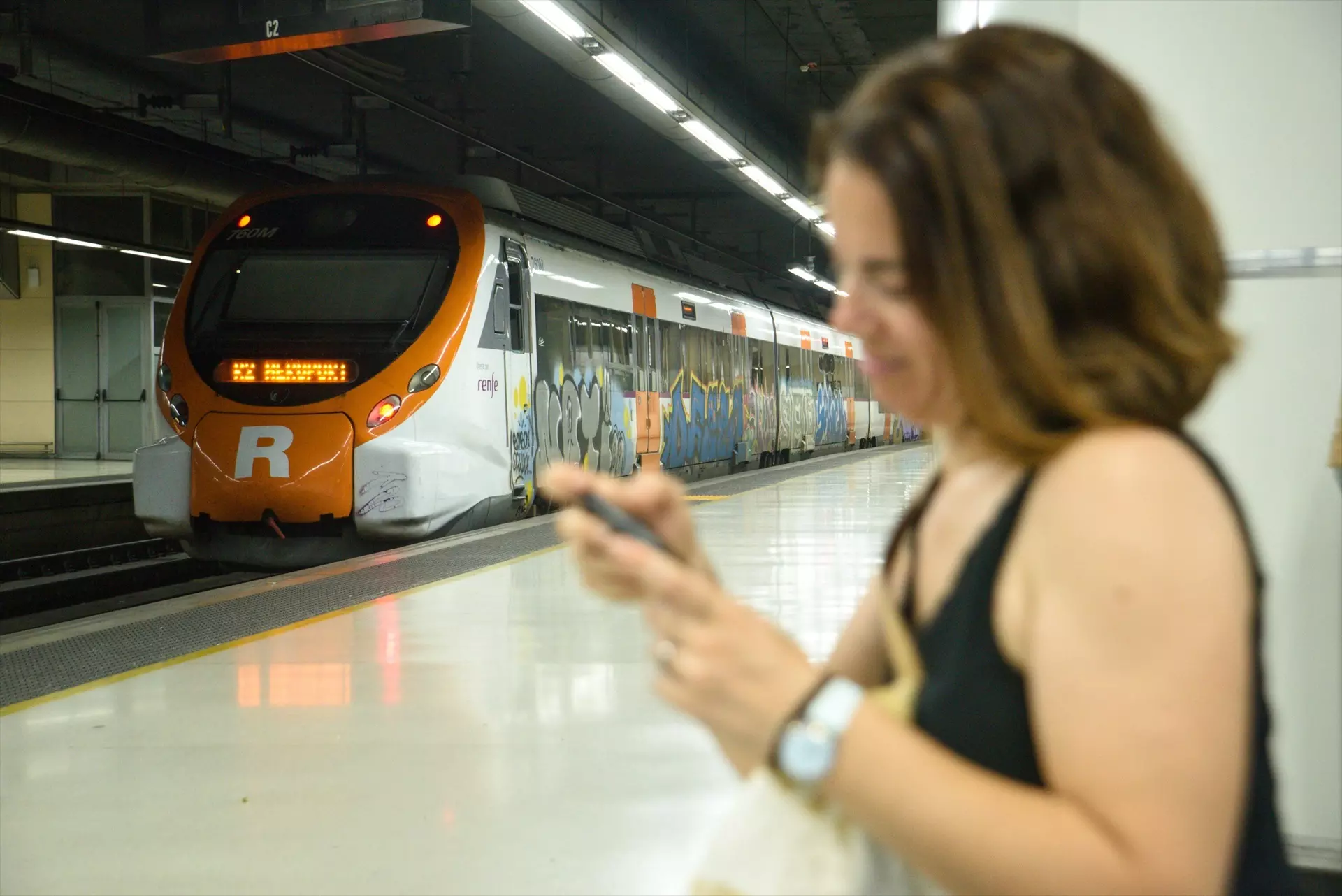Fed up with seeing themselves “mistreated” and neglected by Renfe, dozens of regular users of the train lines between Tarragona and Barcelona decided to organize through the Dignidad en las Vías platform to send their discomfort and complaints about the operation of the trains to the administration. It all started with a WhatsApp group, where everyone shared information about delays and schedule changes that Renfe did not communicate to them.
Anna Gomezspokesperson for the platform, explains that it is a very active group, since there are incidents on the network practically every day. An even more active group since the start of work on the Roda de Berà tunnel to improve the Mediterranean Corridor. Some work has left Tarragona and Sant Vicenç de Calders (Tarragona) without a rail connection – now connected by a bus – and will last five months. Although the works have aggravated the operation of the trains and the daily lives of passengers, The truth is that the problems come from much earlier.
Currently there are more than 500 people in the group. Each one of them has their story, but they all share the discomfort caused by delays, last-minute schedule changes, the lack of information when they get on the train… An often emotional discomfort that ends up affecting their mental health. This is confirmed by Gómez, who assures that there are cases of anxiety and stress among regular users.
A year and four months ago, Eva decided to get away from Barcelona, fleeing the stress of the city, and go live in a town. However, he maintained his yoga center next to Sants station, in the Catalan capital, where he travels every day by train. He currently lives in Roda de Berà (Tarragona) and every day he drives to Sant Vicenç de Calders, a municipality that is halfway between Tarragona and Barcelona and with good train connections.
At first it took him 40 minutes by train to get to work, but he confesses that the last few months have been pure hell. Delays, last minute schedule changes, lack of information… A cluster of situations that have greatly affected his daily life and his mental health. “I had never experienced anxiety or a feeling of anguish until now. The uncertainty of leaving the house and not knowing when you will return home is killer,” he acknowledges.
“Train incidents make me lose many hours a day that should be productive, and that undermines my internal health, I notice that I have lost enthusiasm. Time that I used to dedicate to doing things that I like, like going for a run first thing in the morning in the morning, now I don’t do them because I can’t trust if the train will arrive on time or not. Users have given up our free time“he confesses.
Eva explains that she lost a worker because of the anxiety of coming by train. “She wasn’t sure she would get to the center on time and that didn’t let her sleep. She got up at five to take the six o’clock train to open the center at ten in the morning. So she decided to give up her job. “, he assures.
An impediment to family conciliation
Òscar is from Tarragona, but nine years ago he moved to Barcelona for work. Two years ago, his partner found work in Tarragona and they decided to move to an intermediate point: Altafulla (Tarragona), a town with a favorable environment for creatures and with a train station to be able to go to Barcelona on the days that Òscar does not telework. A few days that have become a real adventure. “Delays are daily. Every day there is a permanent delay of about 15 minutesand once or twice a week there is a big delay of 45 minutes to two hours,” he explains.
Train malfunctions too affects family conciliation. “Family organization is complicated. Due to schedule, when I go to Barcelona to work, on the way back I could go pick up my daughters from school, but we no longer have that because we can’t rely on the trains. We have to pull from family or friends,” he says. “It’s not just that I can’t pick up my daughters from school, it’s that being able to go myself would allow my partner to have free time that he doesn’t have. Something that is not my fault and that in theory should work, as public transportation is, it ends up causing a lot of problems in my personal life,” he laments.
Òscar explains that this constant uncertainty is hard psychologically because it does not allow you to reconcilenor being a reliable person in terms of schedules, and from time to time it also makes you miss a work meeting… “In fact, at the beginning of going by train, if I had an important meeting at work I would ask some friends if I could stay at their house because I wanted to make sure I arrived.
Eva details that the feeling that all users have is of “poor planning and little consideration for people’s lives.” “We feel vulnerable,” he says.
Solidarity between users
The discomfort that united this group of regular train users between Tarragona and Barcelona has ended up turning into solidarity. Òscar explains that the first week he took the train in Altafulla there was a total cut that left the town without trains for three hours. “Luckily, a group of people also affected offered to take me and since then I have been in that WhatsApp group,” he says.
Regarding the car alternative, both agree that it is not an alternative. “It’s unfeasible. If you add everything up, the gasoline and the parking, it’s not acceptable. Not to mention the traffic to enter Barcelona during rush hours,” says Eva. “In addition, the lack of tolls and the problem of rail service have increased the influx of vehicles on the highway,” he concludes.
